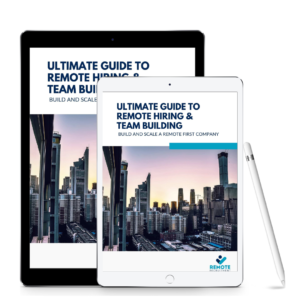Your Ultimate Guide to Remote Hiring and Team Building
This global growth playbook outlines the steps, considerations, and resources required to build a remote-first team.
Your Ultimate Guide to Remote Hiring and Team Building
This global growth playbook outlines the steps, considerations, and resources required to build a remote-first team.

In this guide
With accessible tools and platforms, business owners can seamlessly tap into our international talent pools and manage a workforce across borders. However, transitioning from traditional to remote-first practices can be challenging.
Our comprehensive guide simplifies this journey, providing actionable insights at every stage:
Unlock the potential of a global, remote-first team and navigate the transition confidently. Get your guide today and shape the future of your company.
Remote Recruitment simplifies the expansion of remote and global teams. Ready to begin?
© Copyright 2024. All Rights Reserved.